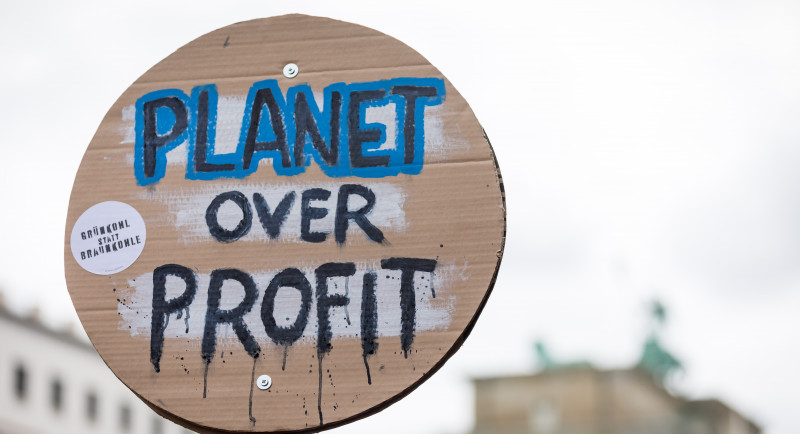EU Commission President Ursula von der Leyen today set out a major €750 billion coronavirus recovery package, ‘Next Generation EU’, promising a green, digital, resilient Europe – a move Friends of the Earth Europe welcomed, but cautioned falls short of building back a better Europe.
Friends of the Earth Europe criticised a lack of any conditionality to prevent Member States from directing public funds and state aid to fossil fuel companies and polluting industries without commitments to lower their climate and environmental impacts.
Jagoda Munic, director of Friends of the Earth Europe said:
“People are reeling from the shock of this pandemic, so it’s right for the EU to act in solidarity injecting billions to resuscitate our economies while emphasising a ‘green recovery’.
“But it’s ludicrous not to put any conditions on these funds. Our common future will be shaped by how this money is spent, and allowing strings-free handouts to polluting industries, or corporations who dodge tax or have poor labour practices, will not rebuild the sustainable, fair, caring world we need.”
Noteworthy analysis:
- Conditionality: Though President von der Leyen emphasized the European Green Deal, today’s package would not prevent investments in new fossil fuel infrastructure nor put conditions on bailing out polluting industries like airlines – leaving a gaping hole in achieving the aims of the European Green Deal. Nor are there conditions related to compliance with human rights, not paying out dividends, or buy-back of shares for companies that receive funding.
- Farming: President von der Leyen promoted ‘precision farming’ as an instrument of recovery. But this and the general push to increase digitalisation in agriculture is no panacea: without clear rules that ensure farmers’ rights and sovereignty over their data it could further tighten the stranglehold of corporations on our food, and would not help small farmers hit hard by the Coronavirus crisis. Boosting funds for the European Agricultural Fund for Rural Development is welcome, but must be directed to agro-ecology.
- Energy and climate: The plan gives significant political support to the development of hydrogen, without stipulating that this comes from renewable electricity alone. This could open the door to more climate-damaging fossil fuels in our energy system. The Commission will direct welcome financial support to renovating buildings, creating jobs and cutting carbon; this will need to be backed by legislation to reduce energy poverty and ensure every home in Europe meets minimum efficiency standards. Friends of the Earth welcomes an increase in funds for the Just Transition Fund, and the focus on jobs and skills.
- Revenue: To create a new, caring, resilient economy, it is welcome to investigate new potential sources of revenue, be they from green taxes or a digital tax. In order to avoid future austerity policies, the rich must pay their fair share, including through a Corona Wealth Tax.
Jagoda Munic continued:
“Unfortunately the Commission’s ‘green’ recovery package today has a distinctly brown tinge. Too many of the measures fall short of the goals of the European Green Deal, and put techno-fixes and corporate interests first. Boosting hydrogen is no vaccine against the climate emergency, and risks continuing our dependence on polluting fossil fuels. The promotion of digital farming would further tighten the stranglehold of corporations on our food.
“We must leave more to the next generation than precarious jobs and environmental collapse.”







